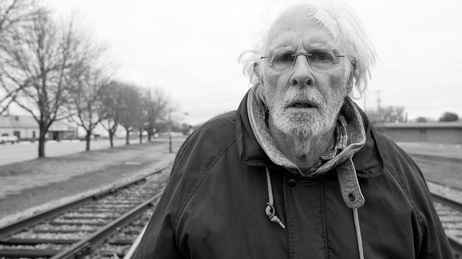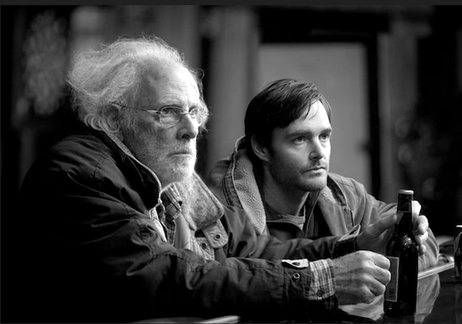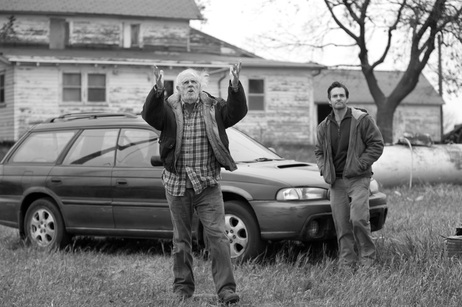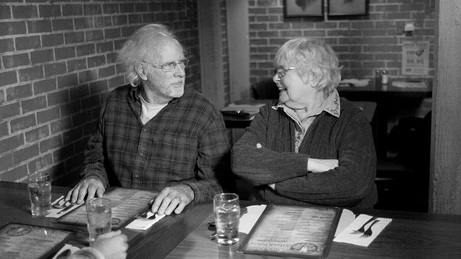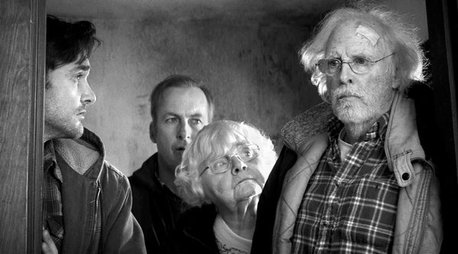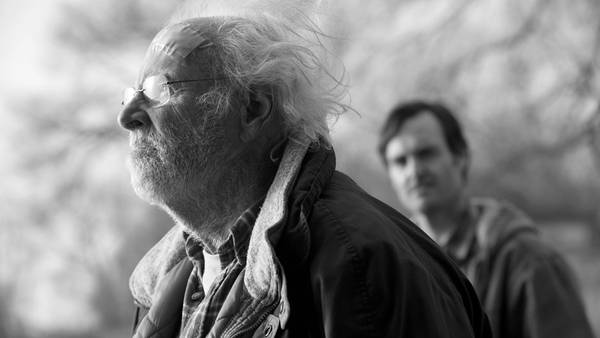|
|
Directed by Alexander Payne, best known for his darkly comedic dramas about middle-aged men trying to find themselves such as Sideways (2004) and The Descendants (2011), Nebraska is a beautiful film about senility and patience. Starring Bruce Dern and Will Forte, the film charts the frustrating lows of dealing with an aging parent alongside guilty dark humour highs.
Elderly father Woody Grant (Dern) is convinced he has won a million dollars after receiving a misleading sweepstakes letter and is determined to somehow make it to Nebraska to claim his winnings. Even if he has to walk across two states to get there. Eventually his sympathetic son David (Forte) relents and agrees to drive him, in the process reconnecting with his father by recounting his past with the help of various relatives in the town where Woody grew up. Nebraska takes the peculiar choice of presenting the entirety of its footage in black and white, an effect that Payne felt lent the film an “iconic, archetypal look”. The effect relates to the stubborn colourlessness with which Woody views the world, giving the world, as well as its characters, an old and tired look. After David offers to take him to see the abandoned farmhouse where he was born Woody responds “What for?” You would be forgiven for thinking that Nebraska is a rather heartless affair about an old man’s nihilistic worldview, which is why the comedic moments are so frequent and important. Despite the use of dark humour, the comedy gives the film a lot of warmth and few will fail to relate to it in some regard. The approach, as well as the simplistic environment and subject matter, make the film feel distinctly and satisfyingly real. These subtleties make the film an uplifting experience. Bruce Dern steals the show with his transformation from sophisticated, highly experienced actor to hard-of-hearing old man Woody Grant which is mesmerising. Dern blankly stares into space, sitting in the passenger seat of his son’s car and is utterly unrecognisable from his previous work in Hang ‘Em High (1968) and Silent Running (1972). In both these roles he played cunning or sharply intelligent characters, which is a far cry from Woody and shows Dern's extensive range. Will Forte performs the exasperated son by presenting the subtleties of a tired, unenthusiastic love towards his father. He communicates frustration and even anger hidden beneath a mature resolve to suffer through his father's behaviour. Woody’s battle to assert and maintain his dignity in old age is touching and sympathetic. Every turn of the story feels entirely natural and assuring but somehow avoids predictability. Nebraska manages to surprise with untold secrets of Woody’s eventful past and his esoteric present self, leading comfortably up to the anticipated and dreaded moment where Woody’s tenacious pipe dream of becoming a millionaire reaches its climax. The film calls to mind last year's Oscar winner for best foreign film Amour (2012), which also dealt with the subject of old age although Nebraska's approach is far less graceful. With a background of Nebraska’s rolling fields, extensive pastures and rows of crops, the quiet and modest heartland of America is an original and underused gem too often forgotten by filmmakers and utilised well by Payne and cinematographer Phedon Papamichael (who also worked with Payne on his previous two features). The empty U.S. state feels like another world, as if the characters had jumped back in time to a simpler age where people got married young and spent their lives working a day job in the same small town and how quickly someone drove from Montana to Nebraska is the most interesting conversation topic in the world. With such notable performances, striking presentation and heart-warming narrative, this narrative about uncommon humanity makes it far more relevant than any explosive adventure. Nebraska deserves all the praise it is sure to receive on Oscar night. |

